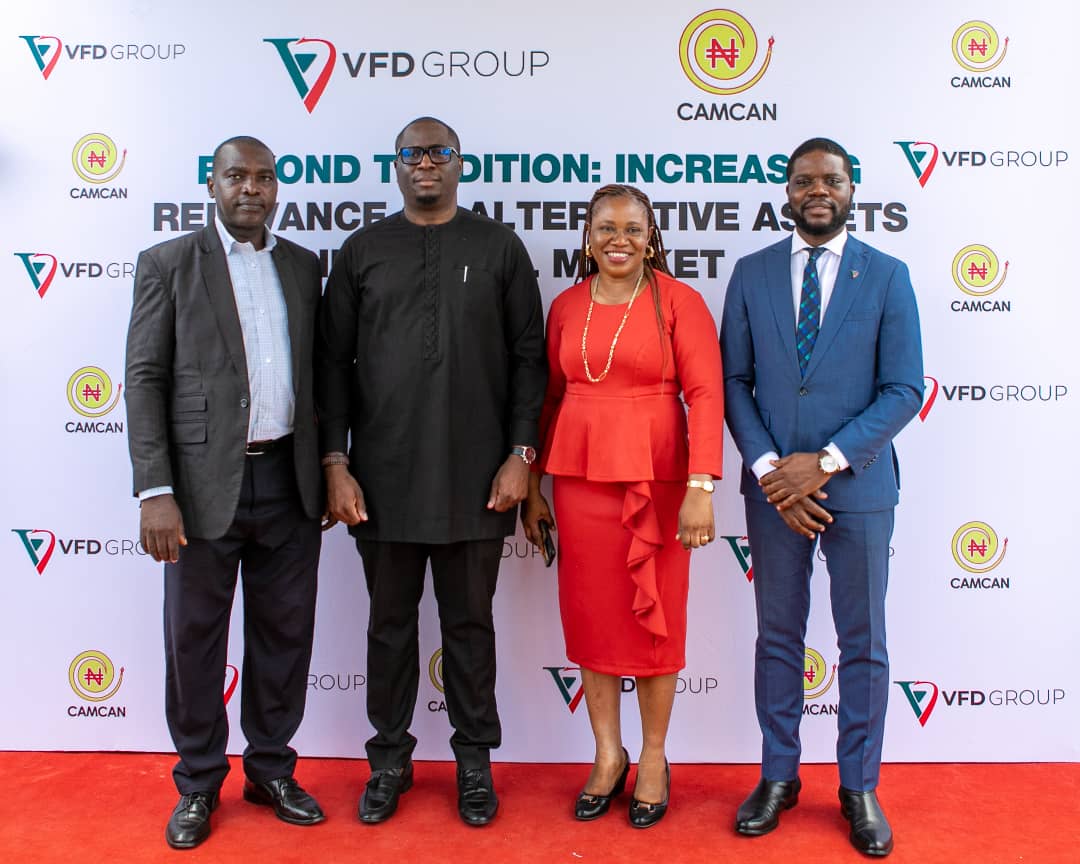By Chioma Obinagwam
VDF Group Plc has reiterated the need for increased financing for the creative industry to boost foreign exchange earnings and economic development.
That was the submission of the Managing Director (MD) of Splitar Limited, Mr. Folagbade Adeyemi, while speaking at the Capital Market Correspondents Association of Nigeria (CAMCAN) quarterly Forum, sponsored by VFD Group Plc.
Confiance News gathered that the group is actively pursuing an exchange platform tailored to the media and entertainment sector, offering diverse investment opportunities for both domestic and international investors.
He disclosed that SplitXchange, currently in development stage by the group, would offer a platform for financing the media and entertainment industry, among other alternative assets.
Adeyemi noted that seeing the huge potential in the alternative assets, Splitar Holdings through the Split Exchange, would drive the alternative assets space with its revolutionary digital exchange.
With Nigeria’s estimated population at 208.8 million people, Adeyemi highlighted the increasing demand for Nigerian content.
Speaking on the theme: “Beyond Tradition: Increasing Relevance of Alternative Assets in Capital Market,” Adeyemi lamented the absence of robust funding pillars in the country.
Adeyemi noted that funding for the Nigerian entertainment sector primarily originates from outside the country.
According to him, the new market in alternative assets, include Arts and Commodities, Real Estate and Entertainment and Media (E&M).
Speaking on the potential of Entertainment and Media, specifically, Adeyemi noted that globally there is an average market size of $41 billion as at 2021 with an estimated growth 4.2 per cent. However, the country earns $5 billion from the E&M, while the United States earn $750 billion from same sector; and United Kingdom, $140 billion.
Adeyemi whilst pointing out investments by Netflix and Amazon which had churned out blockbuster movies that have gained viewership and streams across the globe noted that Nigeria’s biggest investor in the form of Pension Assets was yet to invest in the entertainment or streaming services.
He stressed the need to solve the problems of liquidity, efficiency, and barriers to entry in the country.
“In today’s market, the quick conversion of assets into cash is a challenge due to the absence of a well-structured marketplace that oversees and regulates these assets.
“The automation of processes such as compliance, escrow account management, dividend distribution, corporate action management, and drag-along actions technology presents a significant challenge in today’s alternative market.
“The high initial cost of assets in this market restricts participation to only affluent individuals and corporate investors,” he said.
Adeyemi explained that the entertainment sector as a self-starter is dependent on the banking sector as the primary provider of funding.
He noted that the sector remains excluded from the organised financial sector due to the inability of intermediaries to recognise Intellectual Property (IP) as a suitable collateral to access funding.
“Projects are financed informally through a network of angel investors, high net worth individuals, non-governmental organisations, government and personal savings,” Adeyemi said.
He further pointed out that “investors and asset creators face challenges when seeking investment opportunities or raising capital through traditional financial avenues.
“Traditional financial institutions are ill-equipped to appraise the industry opportunities due to poor visibility, data and income/revenue leakages leading to mispricing through high-interest rates, market illiquidity of associated securities, poor market depth, and lack of accessibility for retail investors,” he said.
Aside from this, he said, conventional financing methods do not offer an efficient means to invest in fractional ownership of valuable assets.
“This lack of accessibility hinders the growth of the investment market and restricts opportunities for both investors and asset creators,” he said.



